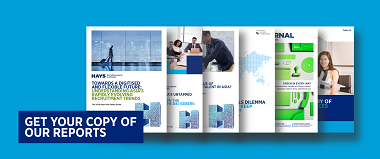Jobs & employment blogs
Your career is a journey with many opportunities to explore. As a trusted partner, we guide thousands of professionals and employers through every step of their way. From industry specific insights, interview preparation, to team management and in-demand jobs – we’ve got you covered.
From salary guides, to diversity reports, or recruiting and hiring trends, we've got you covered.
As your lifelong career partner, we are here to help you navigate an evolving world of work – and move forward in your career. Discover all our latest tips, advice and guides.
As the world of work evolves, we are here to support you through both the current challenges and your longer-term planning. Discover all our latest insights.



